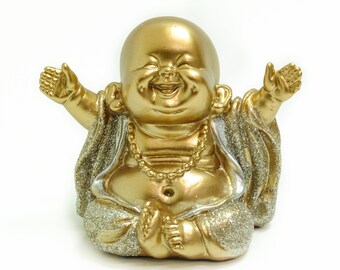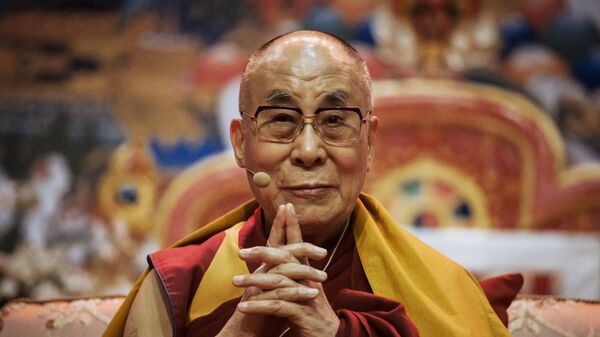CarderPlanet
Professional
- Messages
- 2,549
- Reaction score
- 724
- Points
- 113
I accept Buddhism! And it's not a joke. At the moment it is the best religion in the world and now you will find out why!
Introduction
I think most of you are not really fumbling for Buddhism and that's okay. This thing is professed by people absolutely alien in mentality, and even of a different race. Most likely, in your view, Buddhism looks like + - like this: there is a Buddha - a funny pot-bellied uncle who is like God. For everything to be good, you need to spin the prayer drum and then the Buddha from the sky will show the class!

And you also need to meditate and then you will definitely be reborn into some kind of sacred cow. In fact, everything is not so at all, Buddha is not a god, and Buddhism itself can hardly be called a religion. It is rather a lifestyle, worldview, or philosophy. Like the same stoicism. In Buddhism, there are no strict dogmas, as in the same Christianity. It is flexible and can adapt to human life as new technologies develop. That is why it is cool and is unlikely to ever lose its relevance.

History
Like any self-respecting religion, Buddhism has a central personality. This is Siddhartha Gautama, or Buddha Shakyamuni. In general, the word "Buddha" means awakened, or for better understanding - "enlightened." So, comrade Gautama became the first enlightened one. He grew up in a royal family in what is now Nepal about 2,500 years ago. Throughout his youth, he lived in carefree prosperity and never faced the typical problems of most people of that time - hunger, poverty and disease. Therefore, when he first met ordinary people at the age of about 30, he was shocked to the core. He had a goal - to find a way to rid people of suffering. So he left his palace and embarked on a long journey. Eventually he discovered meditation and became enlightened, and then passed on the knowledge to his devoted disciples.

What's the point?
So what did that very first Buddha understand? Buddhism is a rather complex and developed by many people philosophy with many branches. But if to generalize, the essence of Buddhism comes down to getting rid of suffering (read - anxiety, minor problems, conflict with people) and achieving enlightenment (pure mind, happiness, tranquility) through meditation and self-restraint. That is, work on yourself and cleanse your brains, because already at that time the Buddha realized that the cause of the suffering of all people is in their heads. Responsibility is an important part of Buddhism. Buddhists believe that a person's life is in his own hands and there are no higher powers that will help him cope with his problems and comprehend nirvana. Nirvana, by the way, is that very state without suffering. Well, in classical Buddhism, as in other religions, there are commandments - do not kill, do not commit adultery, do not drink, do not steal, do not lie. At first glance, it seems boring and incomplete. That is, what happens? Buddhism is stupid meditation + a couple of principles that will lead you to enlightenment? Something like this, but it's not that simple. I'll explain now.

Versatility
In general, what is cool Buddhism. It's as if it's not there. That is, it is impossible to clearly define what is Buddhism and what is not Buddhism. That is, any Christian can become a Buddhist. Any principle of Buddhism can be corrected and rewritten. There are no dogmas, which is why Buddhism is a universal philosophy that adapts to any circumstances. And even the commandments are not a panacea. There is a stereotype that Buddhists do not eat meat, or do not drink alcohol. But no. Everyone follows the commandments he accepts. In Buddhism, there is even one Buddha who was very fond of sex, drinking and other debauchery. And he was a sage who even made a temple. True, the temple turned out to be X @ evym, because on its walls people draw members with might and main, as a symbol of love and prosperity. But what remains? Work on consciousness, through its purification, acceptance and love of the world as it is, control of their actions and desires, their awareness. If all these things are peculiar to you, then in essence you can be called a Buddhist. Even if you hear this word for the first time and do not know what it is.

Outcome
So, our first introductory part on Buddhism + is completed. Now you have a general and correct understanding of this religion. But do not think that this is where we are finished. There are so many interesting things in Buddhism, like the same Tibetan monks. I have outlined the general touches, and the details will be in the new posts.
Introduction
I think most of you are not really fumbling for Buddhism and that's okay. This thing is professed by people absolutely alien in mentality, and even of a different race. Most likely, in your view, Buddhism looks like + - like this: there is a Buddha - a funny pot-bellied uncle who is like God. For everything to be good, you need to spin the prayer drum and then the Buddha from the sky will show the class!

And you also need to meditate and then you will definitely be reborn into some kind of sacred cow. In fact, everything is not so at all, Buddha is not a god, and Buddhism itself can hardly be called a religion. It is rather a lifestyle, worldview, or philosophy. Like the same stoicism. In Buddhism, there are no strict dogmas, as in the same Christianity. It is flexible and can adapt to human life as new technologies develop. That is why it is cool and is unlikely to ever lose its relevance.

History
Like any self-respecting religion, Buddhism has a central personality. This is Siddhartha Gautama, or Buddha Shakyamuni. In general, the word "Buddha" means awakened, or for better understanding - "enlightened." So, comrade Gautama became the first enlightened one. He grew up in a royal family in what is now Nepal about 2,500 years ago. Throughout his youth, he lived in carefree prosperity and never faced the typical problems of most people of that time - hunger, poverty and disease. Therefore, when he first met ordinary people at the age of about 30, he was shocked to the core. He had a goal - to find a way to rid people of suffering. So he left his palace and embarked on a long journey. Eventually he discovered meditation and became enlightened, and then passed on the knowledge to his devoted disciples.

What's the point?
So what did that very first Buddha understand? Buddhism is a rather complex and developed by many people philosophy with many branches. But if to generalize, the essence of Buddhism comes down to getting rid of suffering (read - anxiety, minor problems, conflict with people) and achieving enlightenment (pure mind, happiness, tranquility) through meditation and self-restraint. That is, work on yourself and cleanse your brains, because already at that time the Buddha realized that the cause of the suffering of all people is in their heads. Responsibility is an important part of Buddhism. Buddhists believe that a person's life is in his own hands and there are no higher powers that will help him cope with his problems and comprehend nirvana. Nirvana, by the way, is that very state without suffering. Well, in classical Buddhism, as in other religions, there are commandments - do not kill, do not commit adultery, do not drink, do not steal, do not lie. At first glance, it seems boring and incomplete. That is, what happens? Buddhism is stupid meditation + a couple of principles that will lead you to enlightenment? Something like this, but it's not that simple. I'll explain now.

Versatility
In general, what is cool Buddhism. It's as if it's not there. That is, it is impossible to clearly define what is Buddhism and what is not Buddhism. That is, any Christian can become a Buddhist. Any principle of Buddhism can be corrected and rewritten. There are no dogmas, which is why Buddhism is a universal philosophy that adapts to any circumstances. And even the commandments are not a panacea. There is a stereotype that Buddhists do not eat meat, or do not drink alcohol. But no. Everyone follows the commandments he accepts. In Buddhism, there is even one Buddha who was very fond of sex, drinking and other debauchery. And he was a sage who even made a temple. True, the temple turned out to be X @ evym, because on its walls people draw members with might and main, as a symbol of love and prosperity. But what remains? Work on consciousness, through its purification, acceptance and love of the world as it is, control of their actions and desires, their awareness. If all these things are peculiar to you, then in essence you can be called a Buddhist. Even if you hear this word for the first time and do not know what it is.

Outcome
So, our first introductory part on Buddhism + is completed. Now you have a general and correct understanding of this religion. But do not think that this is where we are finished. There are so many interesting things in Buddhism, like the same Tibetan monks. I have outlined the general touches, and the details will be in the new posts.

